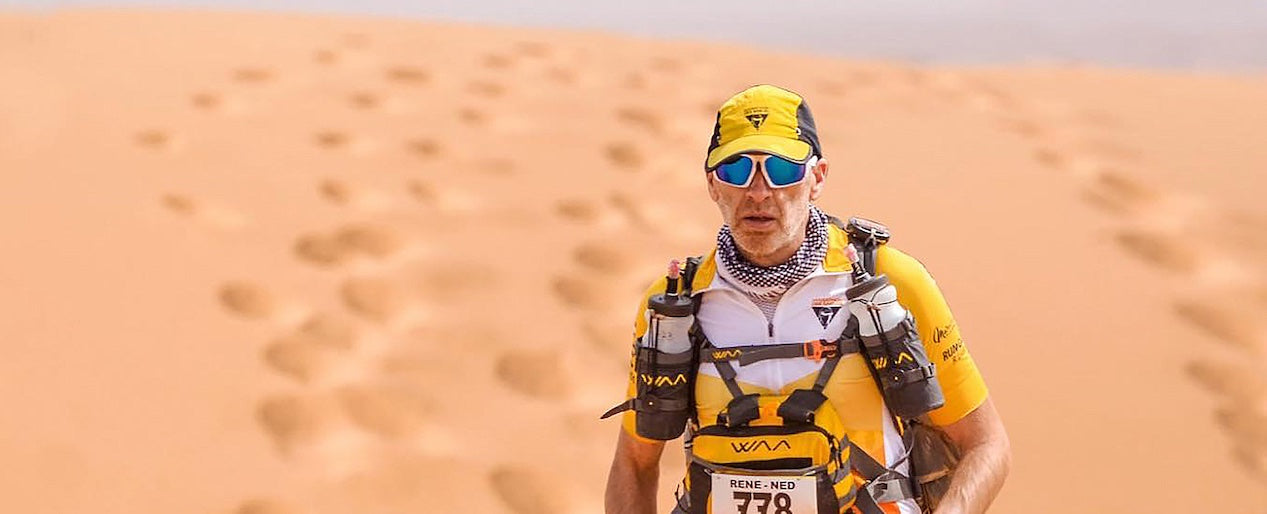
Rene's endurance sports journey: from marathon to ultramarathon
In 1986, René ran his first marathon, a feat that marked the beginning of a long and passionate involvement in endurance sports. At 16, he was still playing soccer, but his interests shifted when he was given the opportunity to compete in a triathlon. After six months of intensive training, he completed his first triathlon. "When I completed my first triathlon at 16, I was over the moon," René says. "After that, I joined a triathlon club, and the encouragement of like-minded athletes kept me going." What started as a 10K race evolved into full marathons and eventually ultramarathons.

From marathon to ultramarathon
The transition from marathon to ultramarathon brought new challenges. René discovered that preparing for an ultramarathon is more difficult. While training alongside his work, he realized that nutrition and hydration are also important. "I used to just run with a banana and some water," he says, laughing. "But now, with advanced sports nutrition and technology, you really have to be a bit of a mathematician to understand everything properly."
For René, nutrition and hydration were not the only new lessons. Team building and cooperation also became important lessons for René. He had a striking experience during an expedition in Russia. There he had to walk a route with strangers. He expected conflicts because of the different personalities within the team. But he soon noticed that by training and working together every day, the team grew closer. He noticed this especially when he started training with someone who he thought would get into a fight because of his different personality. "In the beginning I thought we would get into a fight because of the different personalities," he says. "But as you get to know each other, it turns out to be very valuable. Being forced to deal with each other contributes to a good team."

Making preparations
Preparing for an ultramarathon required more than just physical training. René learned to deal with different conditions such as terrain, weather and route planning. He emphasized the importance of knowledge of the area, the right equipment and a good balance of nutrition. "You have to be prepared for everything," he explains. "Whether it is the terrain, the weather or the route, every factor plays a role in your success."
Despite his extensive experience, René remained modest about his motivation. He found it difficult to explain exactly why he took on these extreme challenges. "Why am I doing this? I can't really answer that," he admits. "For me, it just feels logical, especially when you're surrounded by like-minded athletes."

The present
Now, at 54, René has traded in road marathons for trail runs in the woods. This transition was also largely based on avoiding a knee injury. But he doesn't mind the transition and even emphasizes that running in nature is the best thing there is. "I don't run road marathons anymore. I need cushioning for my knees, and now I run in the woods. That's the best thing there is."
